What has gone wrong? You checked the weather forecast carefully in advance, and when you took off the sky was clear and visibility was excellent. It was supposed to stay that way. But now the clouds are getting lower, you’re peering through gloom and drizzle – and could that have been an ominous rumble of thunder? It’s becoming difficult to navigate, and if things get any worse it’ll be just plain scary? How did this happen, when you were so careful? And more importantly, what should you do?

If you haven’t encountered this scenario or one like it, then you either haven’t been flying very long or you live in a part of the world with remarkably reliable weather…if such places exist. For the rest of us, if you haven’t been caught out by the weather yet when you’ve been flying, then someday you almost definitely will. Weather is changeable, and forecasting it is not an exact science. So it is sensible to have some idea in advance of what you will do if conditions change during your flight.
I’ve said it before, but it’s worth repeating - the first and absolutely the most important fact to remember is that helicopters can land almost anywhere. All you need is a piece of flat ground, and it doesn’t need to be very big. In a real emergency, a flat roof in a city or a small clearing in a forest will do just fine, so long as you have the skill to land there. This is perhaps the greatest advantage of helicopters over all other types of aircraft, and it is maybe an escape route that should be used more often, especially by low hours pilots. Even the British CAA, an organisation not renowned for being in favour of pilots landing wherever and whenever they feel like it, states in a safety leaflet on helicopter flying: “A helicopter has the unique ability to land almost anywhere. If…you find yourself in a weather, fuel, navigation or other difficulty – simply land and sort out the situation’. And to quote yet another well-known aviation saying: “It is better to be down here wishing you were up there, than vice-versa”.
This story is from the September 2017 edition of Global Aviator - South Africa.
Start your 7-day Magzter GOLD free trial to access thousands of curated premium stories, and 9,000+ magazines and newspapers.
Already a subscriber ? Sign In
This story is from the September 2017 edition of Global Aviator - South Africa.
Start your 7-day Magzter GOLD free trial to access thousands of curated premium stories, and 9,000+ magazines and newspapers.
Already a subscriber? Sign In

Edelweiss, The Sound of Music, Grossglockner And Snow, Lots And Lots Of Snow
Austria is a wonderland of mountains, green pastures, lakes and . . . mountains
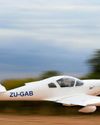
Zimbabwe Air Rally 2021 Part two
The following day we were up early to watch the departure air show once again, it is a large amount of razzle-dazzle to be honest.

Boeing 727 One Crash Per 2 30 6300 Flying Hours
The Boeing 727 is a narrow-body airliner. The first 727-100 rolled out 27 November, 1962, first flew on 9 February, 1963, and entered service with Eastern on 1 February, 1964.
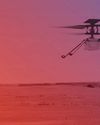
Taking Flight On Another World
The Mars Helicopter, Ingenuity, is a technology demonstration model to test powered, controlled flight on another world for the first time. It hitched a ride to Mars on the Perseverance rover. Once the rover reached a suitable "airfield" location, it released Ingenuity to the surface so it could perform a series of test flights over a 30-Martian-day experimental window.
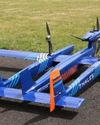
Thales Completes Successful First Flight Of New UAS With Range Capabilities Of Over 100 Km
• With a hybrid propulsion system for optimum safety, endurance and discretion, Thales's UAS 100 long-range unmanned air system for civil, government and military users will be able to operate at ranges of more than 100 km. • UAS 100 combines world-class flight safety performance with the compact design required for unmanned air systems, and complies with future European regulations for drone flights over populated areas. • The system will meet the requirements of a broad range of missions, including infrastructure inspection, coastal surveillance, border surveillance, event security, search-and-rescue and military operations.
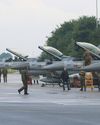
Dutch Squadron Finalises F-16 Operations
The Royal Netherlands Air Force 322 squadron based at Leeuwarden air force base terminated its operations on the F-16 “Fighting Falcon” early July (2021). With the gradual ongoing new deliveries of its successor, the Lockheed Boeing F-35A “Lightning II”, it was time for the squadron to focus only on the embedding of the new jet in the unit.
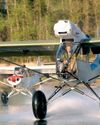
Double Ended Project: Where Is It Now
Traditionally, bush and STOL aircraft have been little more than modified certified trainers, with engine and prop upgrades, or the addition of fatter tyres. However there have been attempts to improve the safety aspect of this type of flying.
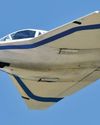
Dyke Delta Lookalike Fighter Kit Plane
The Dyke JD-2 Delta is an American homebuilt aircraft designed in the United States in the 1960s and marketed for amateur construction. It is a monoplane with retractable tricycle undercarriage and seating for four.
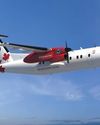
Pratt & Whitney Canada Advances Sustainable Hybrid-Electric Propulsion Technology, Contributing to Canada's Green Recovery Plan
Pratt & Whitney Canada (P&WC), plans to advance its hybridelectric propulsion technology and flight demonstrator programme as part of a $163M CAD investment, supported by the governments of Canada and Quebec.

Airbus showcases the A350-1000 for the first time in Russia at the MAKS 2021 International Aerospace Show
Airbus demonstrated its latest technological innovations and projects implemented in Russia at the International Aerospace Show which took place in Zhukovsky from 20 to 25 July.